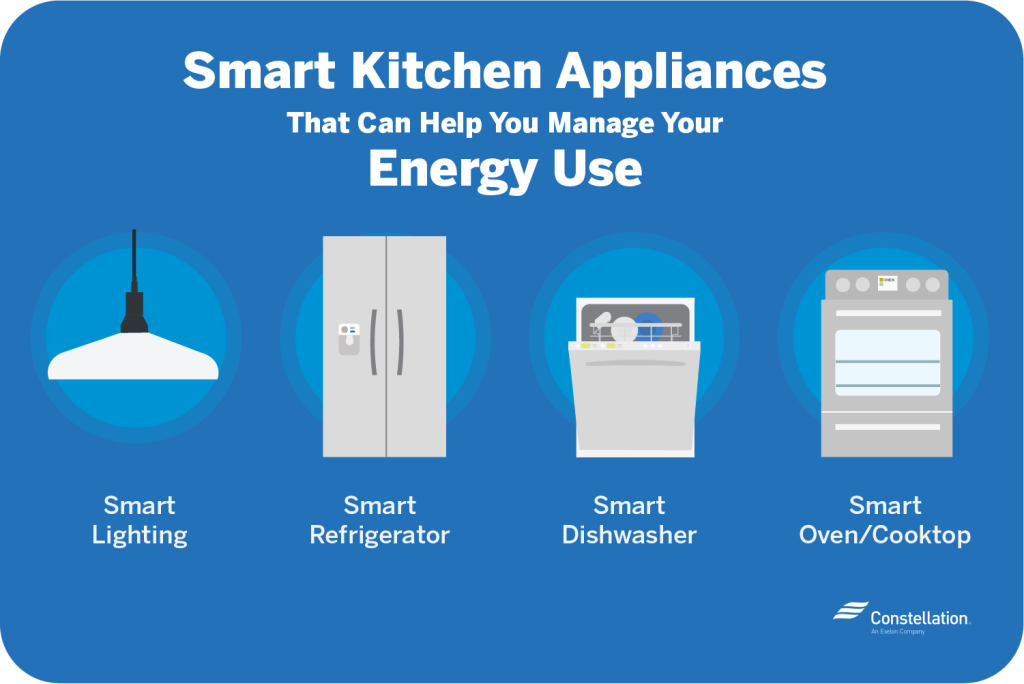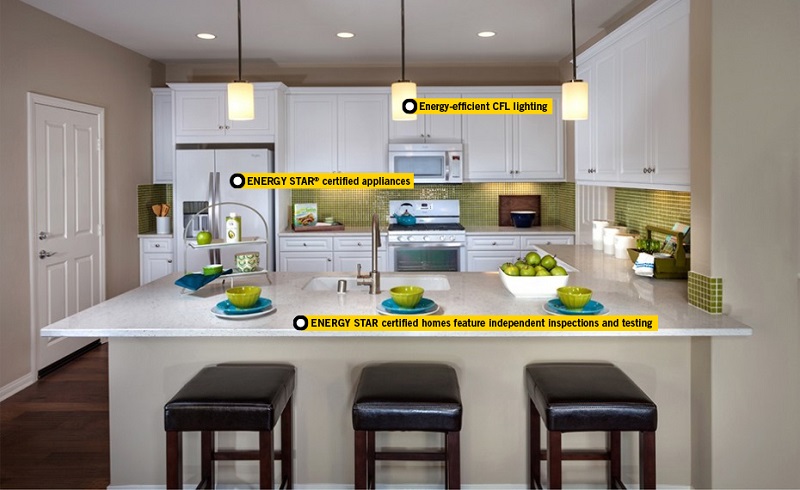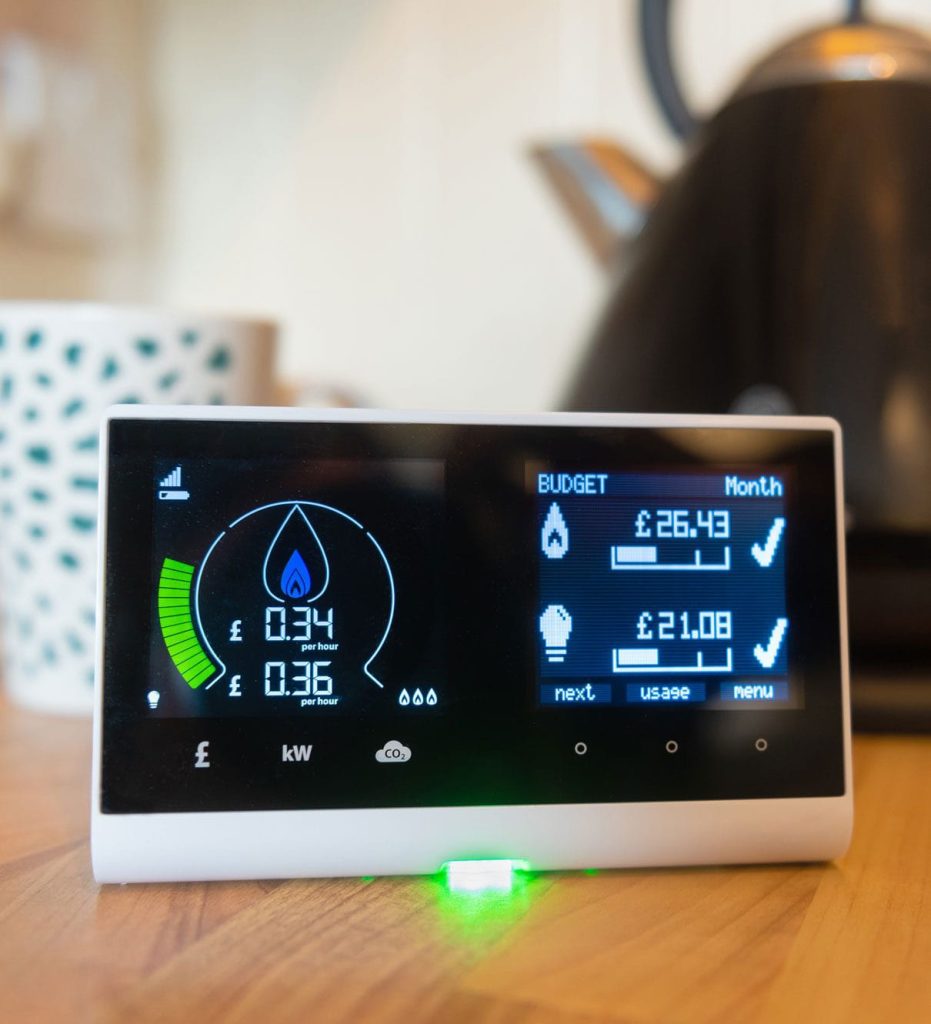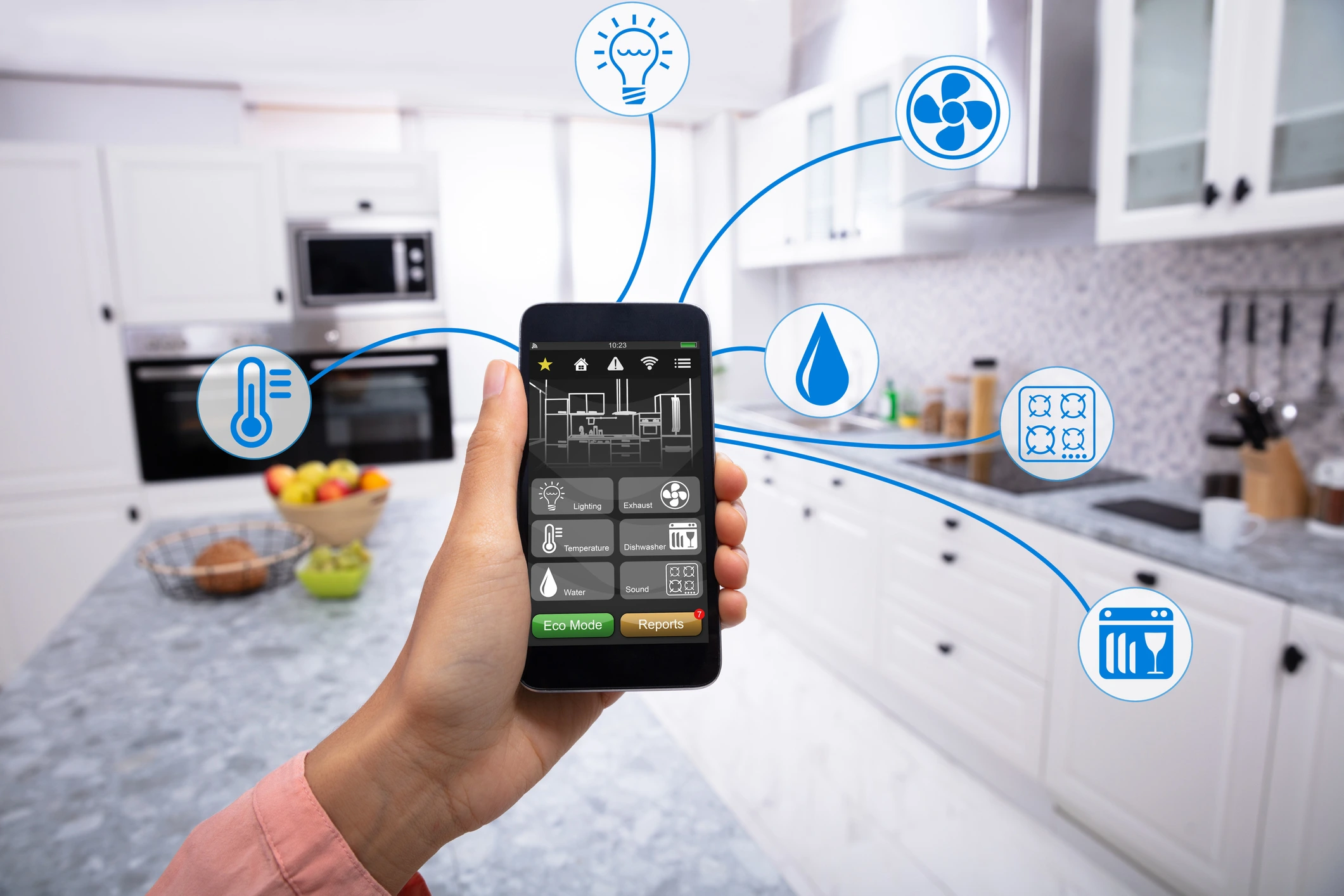As concerns about energy consumption and environmental sustainability continue to grow, the concept of energy efficiency has become increasingly important. In this context, smart home kitchens offer a remarkable advantage. By integrating advanced technologies and intelligent systems, these kitchens have the potential to significantly reduce energy waste, promote sustainable practices, and contribute to a greener future. In this article, we will explore the various ways in which smart home kitchens enhance energy efficiency, from optimizing appliance usage to promoting smart lighting and sustainable practices. By harnessing the power of automation, connectivity, and data-driven insights, smart home kitchens pave the way for a more environmentally conscious and economical approach to cooking and everyday life.

- Energy-Saving Appliances:
Smart home kitchens feature a range of energy-efficient appliances that minimize energy consumption without compromising performance. For example, smart refrigerators utilize advanced insulation techniques and energy-saving modes to reduce power usage. Some models even adjust their cooling cycles based on usage patterns, optimizing energy efficiency.
Smart ovens are equipped with sensors that detect the doneness of food, ensuring precise cooking times and reducing energy waste. These ovens also utilize convection technology, which circulates hot air evenly, thereby reducing cooking time and energy consumption.
Dishwashers with energy-saving features allow users to optimize water usage, temperature settings, and cycle length. Some models can detect the load capacity and adjust water and energy usage accordingly. Additionally, smart dishwashers can be programmed to operate during off-peak hours when energy demand is lower.
- Lighting Optimization:
Smart lighting systems play a vital role in enhancing energy efficiency in smart home kitchens. These systems utilize sensors, timers, and motion detectors to ensure that lights are only active when needed. For example, motion sensors can automatically turn on lights when someone enters the kitchen and turn them off when the space is unoccupied.
Moreover, smart lighting systems offer dimming and color temperature adjustment capabilities, allowing users to create the desired ambiance while consuming less energy. Integration with voice-activated assistants enables users to control the lights with simple voice commands, promoting convenience and reducing unnecessary energy usage.

- Automation and Energy Management:
One of the significant advantages of smart home kitchens is the ability to automate and manage energy usage efficiently. Integrated smart home systems allow users to monitor and control energy consumption in real-time. Smart plugs and power strips enable users to remotely turn off appliances that are not in use, preventing “vampire power” consumption.
Energy management software and smart meters provide detailed insights into energy usage patterns, helping users identify areas where energy can be conserved. By analyzing data from appliances, users can gain a deeper understanding of their energy consumption and make informed decisions to optimize usage.
Additionally, some smart home systems offer load balancing and demand response capabilities. These features help distribute energy usage across different times of the day, leveraging off-peak hours when energy costs are lower. By shifting energy-intensive tasks such as cooking or dishwashing to these periods, users can reduce their energy bills and contribute to grid stability.
- Sustainable Practices:
Smart home kitchens empower users to embrace sustainable practices by providing valuable information and reminders. For instance, smart refrigerators can alert users about food expiration dates, reducing food waste. They can also suggest recipes based on the ingredients available, promoting efficient use of food resources.
Smart faucets with water-saving features regulate water flow and temperature, preventing excessive usage. Some models offer real-time feedback on water consumption, encouraging users to be mindful of their usage habits.
- Smart HVAC Systems: Heating, ventilation, and air conditioning (HVAC) systems:
This play a significant role in energy consumption within the kitchen. Smart HVAC systems use sensors and automation to regulate temperature and air circulation based on occupancy and cooking activities. By optimizing energy usage, these systems reduce wastage and create a comfortable environment while minimizing energy consumption.

- Energy Monitoring and Feedback:
Smart home kitchens offer real-time energy monitoring andfeedback, enabling users to track their energy usage and make informed decisions. Energy monitoring devices provide detailed information on energy consumption by individual appliances, helping users identify energy-hungry devices and adjust their usage accordingly. This data-driven insight motivates users to adopt energy-saving behaviors and ultimately reduce their overall energy footprint.
- Integration with Renewable Energy Systems:
Smart home kitchens can be integrated withrenewable energy systems such as solar panels or wind turbines. By harnessing clean and sustainable energy sources, homeowners can power their kitchen appliances while minimizing their reliance on traditional grid energy. This integration promotes environmental sustainability by reducing greenhouse gas emissions associated with fossil fuel-based electricity generation.
- Smart Grid Integration:
Smart home kitchens have the potential to integrate with the smart grid, creating a symbiotic relationship between the home’s energy consumption and the larger energy infrastructure. Through bidirectional communication, smart home kitchens can adjust their energy usage based on real-time grid conditions. For example, during periods of high demand, the kitchen appliances can temporarily reduce their power consumption to support grid stability. This integration enables homeowners to actively participate in demand response programs and contribute to a more efficient and reliable energy grid.
- Energy Efficiency Education and Awareness:
Smart home kitchens can also serve as educational tools by providing users with tips, reminders, and suggestions for energy-efficient practices. For instance, smart home systems can display energy-saving tips on their interfaces or send notifications to encourage energy-conscious behavior. By fostering awareness and providing guidance, smart home kitchens empower users to make sustainable choices and reduce their environmental impact.
- Remote Monitoring and Control:
Smart home kitchens enable users to remotely monitor and control their energy usage. Through smartphone apps or web interfaces, homeowners can check the status of appliances, adjust settings, and even turn off devices when not in use. This remote access empowers users to manage their energy consumption efficiently, ensuring that appliances are not left on unnecessarily and reducing standby power consumption.
- Energy Efficiency Incentives:
Some utility companies and government agencies offer incentives and rebates for energy-efficient practices and the adoption of smart home technologies. These incentives can range from tax credits to discounted electricity rates. By leveraging these incentives, homeowners can not only reduce their energy bills but also contribute to overall energy conservation efforts in their communities. Smart home kitchens, with their energy-efficient appliances and integrated systems, position homeowners to take advantage of these programs and reap the financial benefits while promoting sustainable practices.
Energy efficiency in smart home kitchens is a compelling benefit that goes beyond mere convenience. By leveraging intelligent appliances, optimized lighting systems, automation, and sustainable practices, these kitchens minimize energy waste, promote renewable energy integration, and empower users to make informed decisions about their energy consumption. Energy-efficient smart home kitchens not only contribute to environmental sustainability but also offer long-term cost savings. As technology continues to advance, we can expect further innovations and increased adoption of energy-efficient practices in the kitchen, ultimately paving the way for a greener and more sustainable future.
